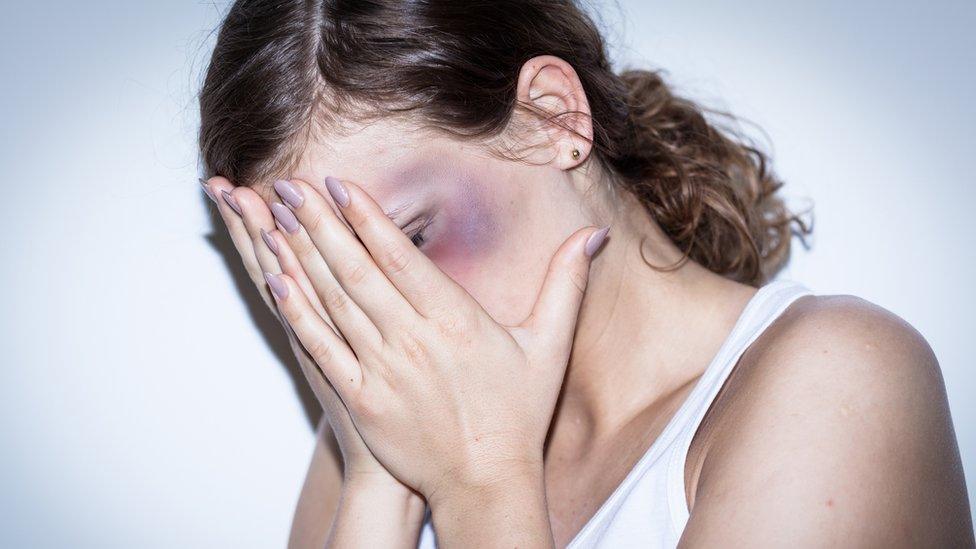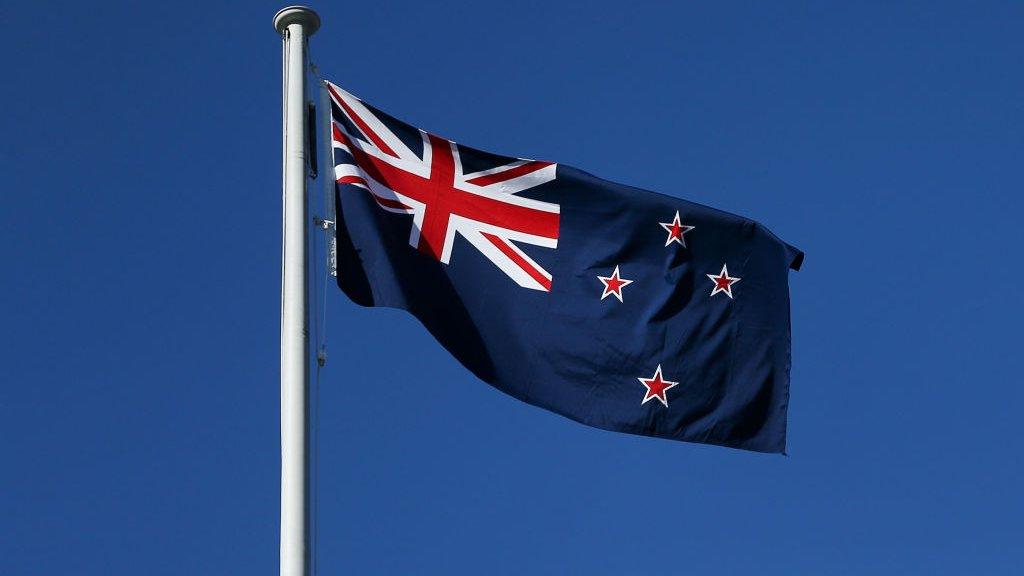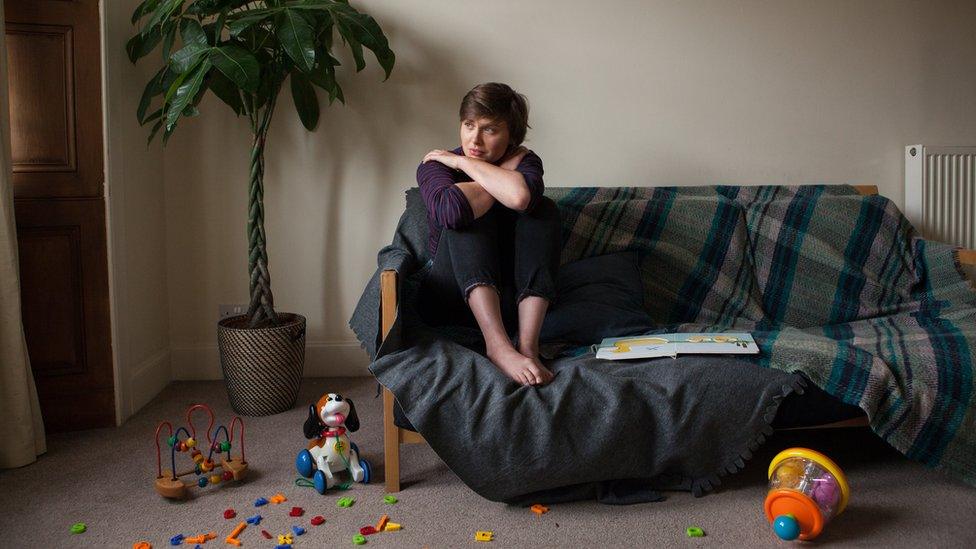Scottish council first to give 'safe leave' to abuse victim staff
- Published

A Scottish council has become the first in Europe to give "safe leave" to employees who have suffered domestic abuse.
South Ayrshire's policy will offer up to 10 days of paid leave to enable staff to seek help and support for themselves and their families.
The policy is inspired by new domestic violence legislation in New Zealand.
It was unanimously supported by all 28 councillors in December and has now been approved.
New Zealand passed its domestic violence victims' protection bill in July 2018, becoming the second country to adopt such a measure after the Philippines led the way in 2004.
Some Canadian provinces provide leave for domestic violence victims, while Australia's Labor party leader Bill Shorten has promised paid leave for victims if his party wins the next election.
Approval of South Ayrshire's policy follows a motion from councillors Laura Brennan-Whitefield and Brian McGinley, which was unanimously supported by all 28 councillors in December last year.
The leave will allow employees to attend medical appointments and counselling, attend legal proceedings, seek safe housing and visit support agencies.

Employees will be given time off if they need it to make arrangements for help and support
Councillor Peter Henderson said: "Across South Ayrshire, we're committed to supporting the most vulnerable people in our communities and working with our partners to raise awareness of domestic abuse and violence.
"Giving abused employees access to up to 10 days' safe leave, where they can take the time off they need to access help and support without the worry of it affecting their finances or using up their annual leave, will make a real and lasting difference that could help change lives forever.
"And just by making that support available, it could help give employees the confidence to ask for help and take the first steps towards a safer life for them and their families.
"Domestic abuse will never be tolerated in South Ayrshire but, sadly, we know it happens, and we want to ensure that - when it affects our employees - we do all we can to support them."


What is abusive behaviour?
New legislation in Scotland, which for the first time criminalises psychological domestic abuse, says abusive behaviour is:
Behaviour that is violent, threatening or intimidating
Behaviour whose purpose is one of the following:
making a partner dependent or subordinate
isolating a partner from friends, relatives or other sources of support
controlling, regulating or monitoring a partner's day-to-day activities
depriving a partner of, or restricting, freedom of action
frightening, humiliating, degrading or punishing a partner
The offence is aggravated if any of the behaviour is directed at a child or witnessed by them.

South Ayrshire believes it is the first council in Europe to offer the provision and it is hoped others might follow.
Mr Henderson added: "Our people are undoubtedly our best assets and I'm proud that we're introducing positive and progressive policies that provide increased support to employees at a time when they need it most.
"These include additional paid maternity and paternity leave for parents of premature babies, which is already making a positive difference for employees, and we will continue to do what we can to lead the way and support our people and places."
The move has been welcomed by domestic abuse charities.
Hazel Bingham, manager of South Ayrshire Women's Aid, said the council's move was a "massive step in the right direction".
"Having a compassionate and supportive employer that allows people the time they need to attend vital appointments, access help and advice, and do what they need to do means they don't need to worry about using up annual leave or going off sick," she said.
"It's essential that council employees know they will be fully supported when they approach their manager or colleagues about their situation and making use of safe leave.
"We're proud to be working in partnership with the council to deliver training and support to ensure there is a clear understanding of the complexities of domestic abuse and employees can make the best use of the safe leave available to them."
- Published25 July 2018

- Published1 February 2018
